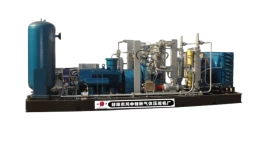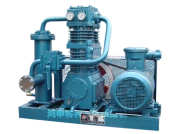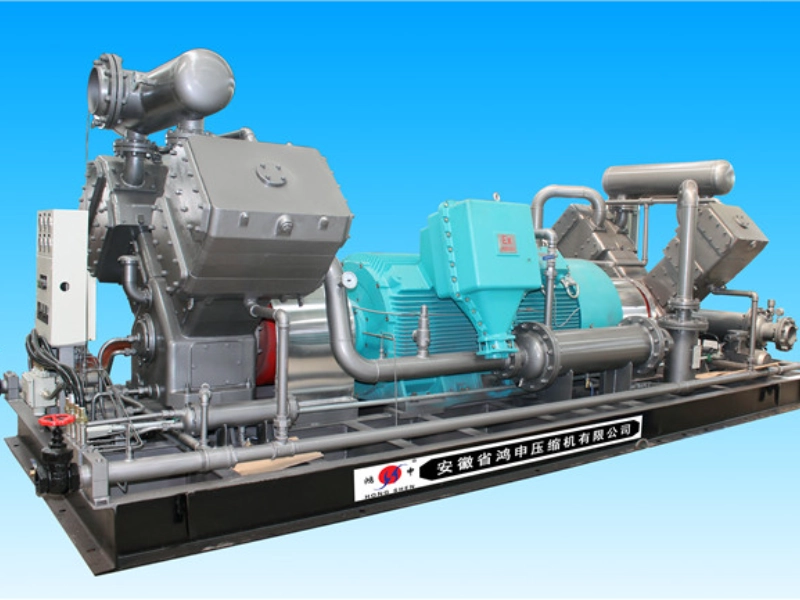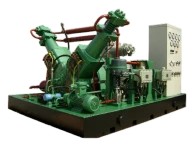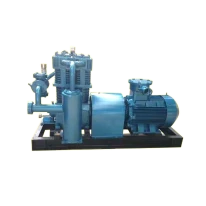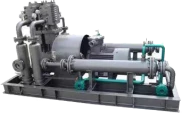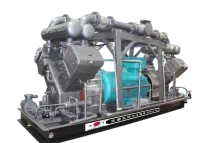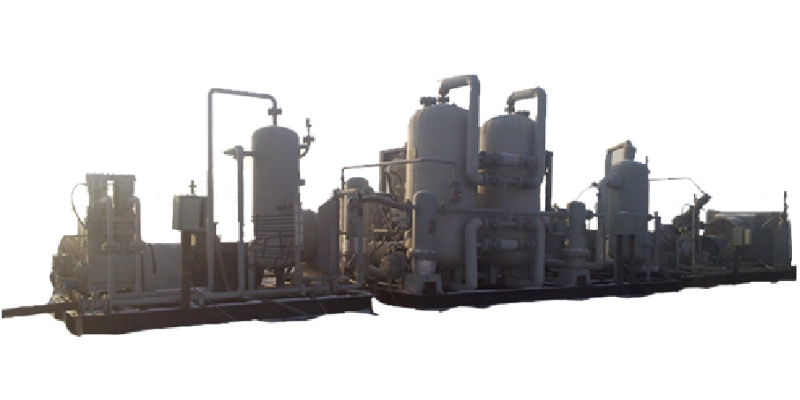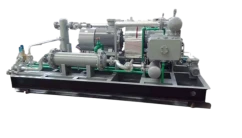Table of Contents
In the energy industry, natural gas compressors are critical equipment, responsible for transporting natural gas from low-pressure to high-pressure systems. However, efficient operation of natural gas compressors relies not only on advanced technology but also on regular maintenance and precise fault prevention measures. Proper maintenance and management can significantly improve equipment reliability and lifespan, reduce operating costs, and ensure the stability of energy transmission systems.
How Natural Gas Compressors Work and Their Importance
Natural gas compressors mechanically compress natural gas from low pressure to high pressure for transportation and storage. These compressors are widely used in long-distance natural gas transportation, gas storage stations, and liquefied natural gas (LNG) facilities. With the growing global demand for natural gas, the efficiency and stability of compressors directly impact the security and affordability of energy supply.
Common Failures and Maintenance Challenges of Natural Gas Compressors
Despite their vital role in energy transmission, natural gas compressors are susceptible to a variety of factors, leading to equipment failure. Common failures include:
Overheating: Prolonged operation or poor heat dissipation can lead to excessive temperatures, impacting equipment performance and even causing damage.
Gas Leakage: Damage to compressor components such as seals and valves can lead to natural gas leaks, posing a safety hazard.
Vibration Issues: Excessive vibration generated during compressor operation can cause wear or structural damage to mechanical components, impacting the long-term stability of the equipment.
Lubrication System Failure: A faulty compressor lubrication system can cause wear on friction components and shorten the equipment’s lifespan.
These failures not only affect the normal operation of the equipment but can also lead to safety incidents. Therefore, regular inspection, maintenance, and fault prevention are crucial.
Key Measures to Improve Natural Gas Compressor Maintenance Efficiency
To improve natural gas compressor maintenance efficiency and ensure efficient and safe operation, the following points are crucial:
Regular Inspection and Maintenance
Efficient natural gas compressors require regular inspection and maintenance, especially for key components such as seals, lubrication, and gas flow. During inspection, pay attention to abnormal noise, temperature rise, and pressure fluctuations. These issues should be addressed promptly to prevent minor problems from becoming major failures.
Intelligent Monitoring and Data Analysis
With the development of Internet of Things technology, many natural gas compressors can be connected to remote monitoring systems via sensors. These intelligent monitoring systems can collect real-time compressor operating data, such as temperature, pressure, and flow. Data analysis enables early detection of potential problems, enabling early warning and adjustments, significantly reducing the risk of sudden failures.
Timely Replacement of Consumable Parts
Many components in natural gas compressors are consumable, such as seals, filters, and valves. Regular replacement of these components effectively prevents failures. Plan component replacement cycles based on the equipment’s age and workload to ensure it remains in optimal working condition.
Improving Operator Skills
An operator’s understanding of the equipment and maintenance skills directly impact compressor efficiency and failure rates. Regular training enhances operator expertise, helping them better understand the equipment’s operating principles and maintenance requirements, effectively reducing failure rates.
Cleaning and Lubrication Management
Cleaning and lubrication are fundamental maintenance tasks for natural gas compressors. Regularly removing dust and impurities from the compressor’s interior and maintaining a clean lubrication system prevents premature wear caused by impurity accumulation. Appropriate use of high-quality lubricants ensures smooth operation of all friction components.
Advanced Technology Helps Prevent Natural Gas Compressor Failures
With continuous technological advancements, new-generation natural gas compressors are equipped with more intelligent control systems that monitor the equipment’s health in real time. For example, artificial intelligence (AI) technology, through big data analysis, can predict equipment operating trends, providing robust data support for maintenance personnel. The application of these technologies not only improves the reliability of smart natural gas compressors but also provides a more scientific basis for fault prevention.
Conclusion: Prevention First, Ensure Energy Security
Natural gas compressor maintenance and fault prevention are key to ensuring the safe and stable operation of energy supply systems. Regular inspections, intelligent monitoring, and timely replacement of vulnerable parts can effectively extend equipment life, reduce failures, and ensure efficient operation of natural gas compressors. In the future, with the continuous advancement of technology, natural gas compressor maintenance will become more intelligent and automated, safeguarding the sustainable development of the global energy industry.

